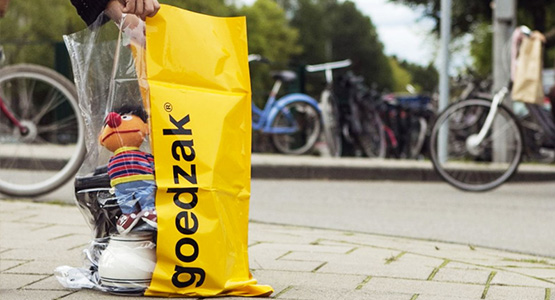
Citaat Friedrich Nietzsche: “Die Furcht ist die Mutter der Moral”
Dat kan hoogleraar fiscaal recht Hans Gribnau wel zeggen, dat het rapport van de ARK over een mogelijke verdamping van de uitgestelde betaling van corona belastingschulden door personeelsgebrek bij de Belastingdienst geen negatieve invloed zal hebben op de belastingmoraal van de Nederlander, maar die moraal heeft wel een flinke knauw gekregen (NRC 8/2/24 Mensen blijven hun belasting betalen, ook al stuurt de fiscus maar weinig deurwaarders). De Belastingdienst gaat in zijn strategische doelstelling uit van het vertrouwen, dat een groot deel van de belastingplichtigen vrijwillig aan hun belastingverplichting wil voldoen. In de wetenschap, dat hun buren in hetzelfde schuitje zitten. Maar niet alleen dat. Toen al in 1979 wees het frauderapport Van Bijsterveld, dat “twee op de drie ondernemers die in de gelegenheid waren fraude te plegen, dit ook inderdaad hebben gedaan”. Decennia later is het belastingontwijkende gedrag van internationale concerns én bekende particulieren richting belastingparadijzen blootgelegd door onderzoeksjournalisten. Het noopt zelfs tot tegenmaatregelen van de OESO. Voeg dat samen met recente berichten in de (sociale) media over bijv. het oneerlijke gedrag van klanten bij zelfscankassa’s, dan is het oud Hollandse spreekwoord nog steeds levend: de gelegenheid maakt de dief. Ook dat bepaalt de belastingmoraal. Hopelijk, dat de hoogleraar nog steeds gelijk heeft. Maar een ‘tipping point’ zou zo maar dichterbij kunnen zijn dan je denkt.
Professor of tax law Hans Gribnau can say that the ARK report on a possible evaporation of the deferred payment of corona tax debts due to a lack of staff at the Tax Authorities will not have a negative impact on the tax morale of the Dutch, but that morale does have a got a big blow (NRC 8/2/24 People continue to pay their taxes, even though the tax authorities send few bailiffs). The Tax Authorities’ strategic objective is based on the confidence that a large proportion of taxpayers will voluntarily comply with their tax obligations. Knowing that their neighbors are in the same boat. But not only that. Back in 1979, the Van Bijsterveld fraud report showed that “two out of three entrepreneurs who had the opportunity to commit fraud actually did so.” Decades later, the tax avoidance behavior of international corporations and well-known private individuals towards tax havens has been exposed by investigative journalists. It even requires countermeasures from the OECD. Combine this with recent reports in the (social) media about, for example, the dishonest behavior of customers at self-checkouts, then the old Dutch proverb is still alive: the opportunity makes the thief. That also determines tax morale. Hopefully the professor is still right. But a ’tipping point’ could be closer than you think.
Ricky Turpijn



